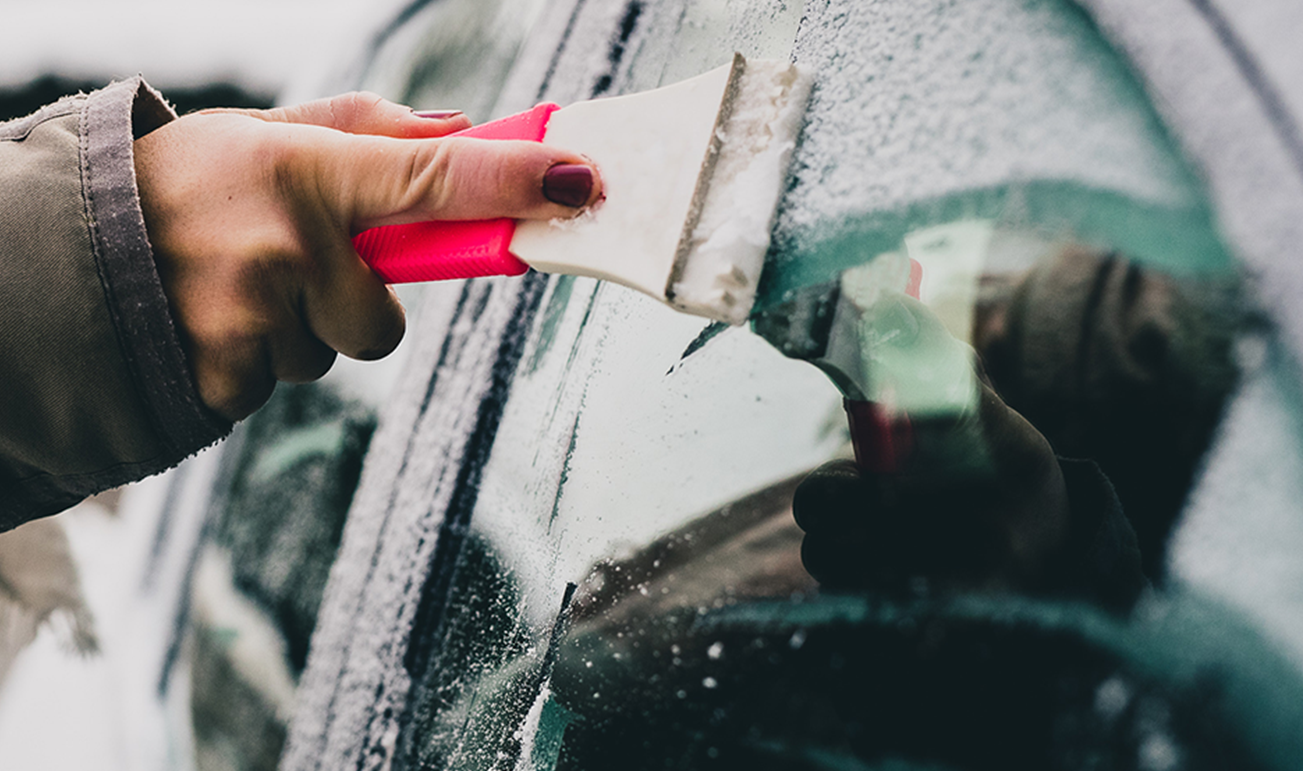BCAA Winter Driving Survey shows British Columbian drivers nervous about winter driving, but not preparing vehicles for bad road conditions

Burnaby, B.C., November 13, 2019 – BCAA’s Winter Driving Survey released today shows that while a large percentage of British Columbians are nervous about driving in ice and snow, many are still not taking steps to prepare their vehicles for winter.
The BCAA survey, conducted by Insights West, reveals 43 per cent of drivers admit to being nervous behind the wheel when bad weather hits. Yet 32 per cent take a ‘wait and see’ approach to readying their vehicles for winter, and a further 21 per cent wait until the last minute or have no plans to prepare their vehicles for winter at all.
Not unexpectedly, the survey shows that drivers are least prepared in typically less snowy parts of the province, such as Metro Vancouver and Vancouver Island. However, BCAA Automotive Manager Josh Smythe urges drivers not to stick their heads in the sand, or should we say in the snow, when it comes to the reality of winter, no matter where they live.
“Chances are, no matter where you are in the province, at some point you’re going to hit bad weather,” he says. He adds that it’s not just snow; but darkness, fog, heavy rain and ice that can all lead to suddenly treacherous driving situations which can go very badly for unprepared drivers.
When harsh winter weather hits, calls to BCAA’s Roadside Assistance can be 40-60 per cent higher across the province. In Metro Vancouver, call volumes typically double as drivers get into tough situations during snowy or frigid weather. And, Smythe says it isn’t just the usual winter conditions that challenge B.C. drivers these days.
“There are newer weather patterns to consider, including windstorms, which some of B.C. has already experienced this season.” If snow doesn’t catch every drivers’ attention, the unpredictability of today’s weather does have more drivers taking notice, with 66 per cent saying that strange, unpredictable weather has made them “more vigilant” about getting their vehicles serviced for winter.
While Smythe sees that as positive news, how British Columbians rate their winter driving overall is not as rosy. Seventy-one per cent rate B.C. motorists as “poor” winter drivers and half (49 per cent) go so far as calling B.C. drivers “probably the worst winter drivers in Canada.”
For Smythe, that’s a perception he would like to see change. “Some of us consider ourselves ‘frost forward’ and get our vehicles ready early in the season, but too many are too chill about winter driving and that’s just dangerous for everyone.”
BCAA’s Josh Smythe offers the following tips for winter prep and driving:
1. Prepare your car to perform in winter so you can drive more safely.
- Get a complete vehicle check-up and install winter tires before cold weather sets in. Sooner is better so you don’t get caught out. For most highways in B.C., the law requires winter tires as of October 1.
- Carry a winter driving emergency kit and chains in your car.
2. Adjust your driving to match the weather conditions.
- Before you drive: check road and weather conditions, clear snow and ice from windows and lights, defog all windows.
- Route plan to avoid trickier areas such as hills or narrow unplowed streets.
- As you drive: slow down, leave more room between you and the car ahead and use turn signals well in advance.
3. Put safety first.
- Be honest about your driving skills and comfort levels—don’t drive in conditions when you don’t have the skills or if you’re nervous.
- Always have a plan b. Avoid the temptation to drive when you shouldn’t by planning other transport options.
- Shovel your driveway and consider how accessible your car is when you park, so roadside assistance can reach you if necessary.
- Carry emergency items in your car, including: highly visible winter outerwear, safety cones, battery jumper cables, a shovel, windshield scraper and brush, flashlight and batteries, warm clothes and boots, gloves, blanket, supply of non-perishable food and water, spare container of winter-grade washer fluid.
-30 -
About the survey
Results are based on an online study conducted from October 13 to 16, 2019 among a representative sample of 1,443 adult B.C. drivers. The data has been statistically weighted according to Canadian census figures for age, gender and region. The margin of error—which measures sample variability—is +/- 2.6 percentage points, 19 times out of 20. Discrepancies between totals are due to rounding.
About BCAA
The most trusted organization in British Columbia by its Members, BCAA serves 1 in 3 B.C. households with industry-leading products including home, car and travel insurance, roadside assistance, Evo Car Share and full automotive services at BCAA’s Auto Service Centres. BCAA has a long history focused on keeping kids safe on the road and at play through community programs such as its School Safety Patrol, Child Passenger Safety and BCAA Play Here. Please visit bcaa.com.
For further information or to schedule an interview, please contact:
Sara Holland
Senior Manager, Communication & Advocacy
BCAA | British Columbia Automobile Association
Tel: 778-874-4046
www.bcaa.com







